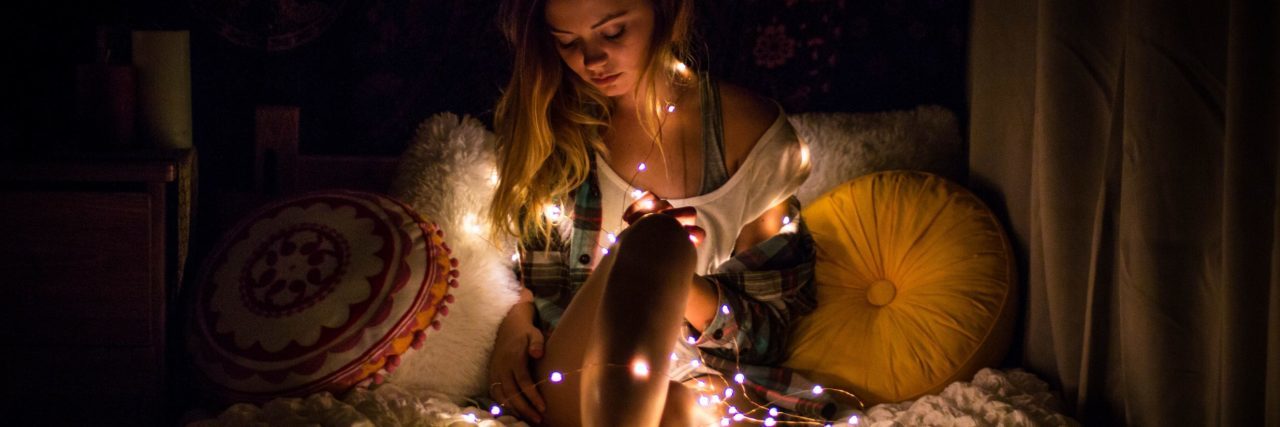Mental illness lends to many a night owl. Insomnia brings extreme exhaustion. My sleep cycle brought on three days of nearly no sleep with the next day comprised of but only four hours of non-restorative sleep, and the vicious cycle continued clear into the week and onto the next. Blame it on the combination of psychiatric medications or my mental illnesses themselves, but this called for “sleep hygiene” — recommended habits to promote good sleep quality — for when sleep escapes. Several sleep hygiene habits my therapist has offered to take the edge off of sleepless nights are as follows.
1) Limit caffeinated beverages and nicotine six hours before bedtime.
I would drink soda pop like water all hours of the day, thinking it didn’t affect my sleep schedule, as well as have that one last cigarette before bed. Surprisingly, these substances act as stimulants and interfere with fully falling asleep. Avoiding said substances before bedtime will aid in a better night’s sleep. Do have a cup of decaffeinated tea like chamomile to relax and soothe into a restful night’s sleep.
2) Your bed should be used for sleep and sleep only.
Living in a studio apartment, my bed doubled as a sofa, dinner table and chair out of clear convenience of the constraints of space. Little did I know my mind and body were having issues associating my bed with the subtleties of sleep. Keep in mind this association is important to create a complete connection.
3) Take technology out of bed.
Like many, I get stuck on my smartphone into the wee hours of the morning, and suddenly sleep is a thing of the past. Turn off your laptop, put your smartphone away, place that tablet on your desk. Remember your bed is for sleep and sleep alone. Turn technology off.
4) Create a sleep schedule.
If you want to wake up at 6 a.m., your bedtime should be 10 p.m. and your sleep schedule should start two hours prior at 8 p.m. Take a bath or shower to raise your body temperature because as it lowers, you will begin to feel super sleepy. Or read a book in which you’re not entirely engaged until you feel like you’re nearly nodding out. Part of my problem was I would get to be wide awake and stare at the ceiling at all hours of the night. The key is to go to bed when you’re seemingly sleepy.
5) Watching the clock is a definite don’t.
At one point, I had to cover my microwave clock with electrical tape because I would watch the time change every hour on the hour until my alarm would go off in the morning. Checking the time all night long causes undue stress and ample anxiety.
6) Go to bed and wake up at the same time during the week and the weekend.
Sleeping in on the weekend seems like such an awesome idea after a long week, but in reality, you will sleep better if you keep the same sleep schedule on a daily basis. I had always thought of sleeping in on the weekend as a well-deserved treat, but can now see how a regular routine can add to superb sleep hygiene habits. Your body will thank you for a more repetitive ritual.
7) Last, but not least, no naps during the day.
My excuse for going in and out of sleep all day was because I would be up at all hours of the night. Never had I thought that maybe, just maybe, my daytime napping was dismally disturbing my nighttime norm. Not napping during the day will ensure you’re totally tired at bedtime.
Mental illness doesn’t have to deter your sleep schedule, but if you work with these several skills, impending insomnia may not be halted but a work-in-progress. Practice these sleep hygiene habits to lull yourself into sweet slumber.
We want to hear your story. Become a Mighty contributor here.
Photo by Andrew Dong on Unsplash

